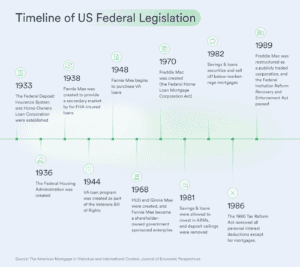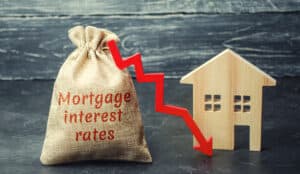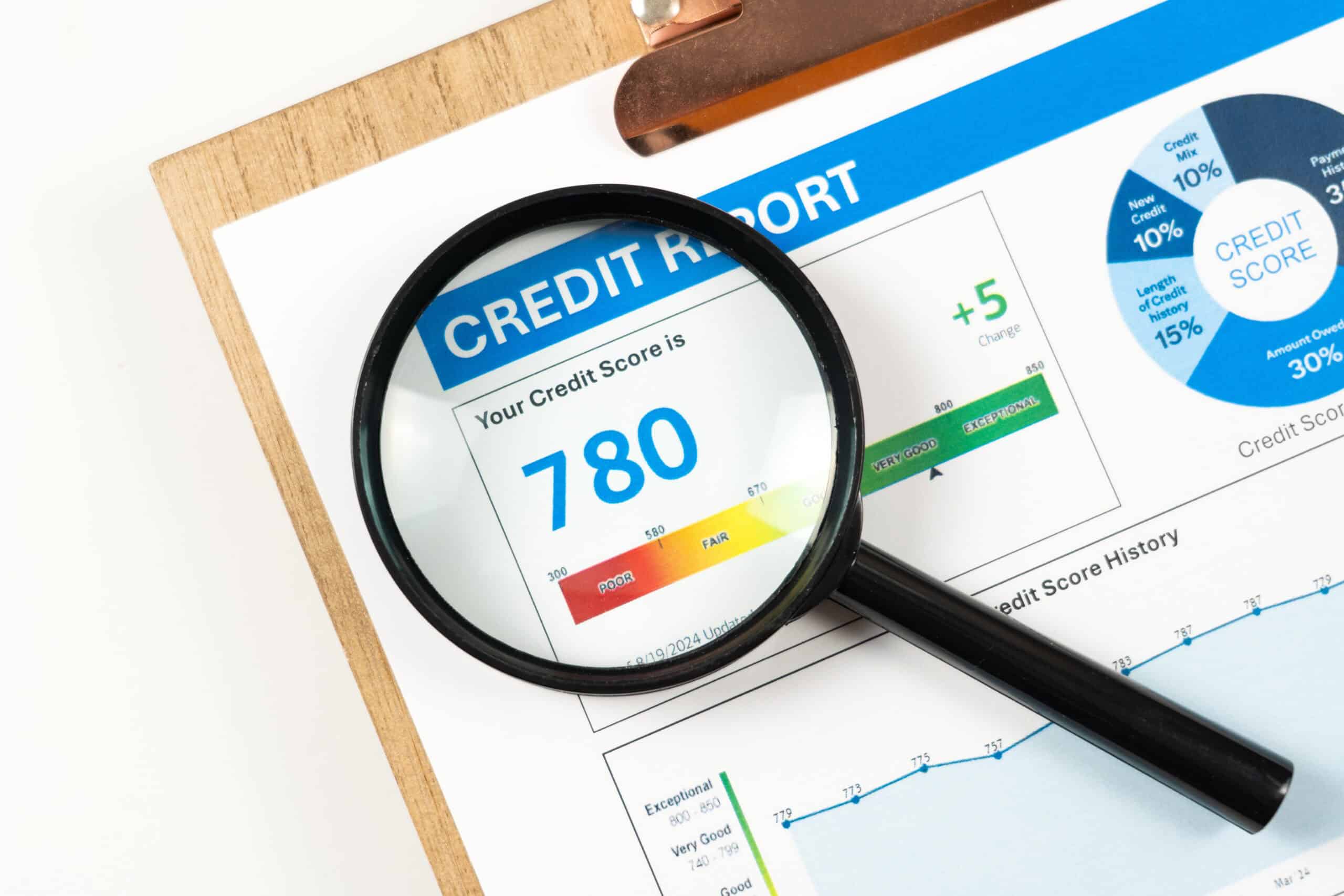When you’re preparing to buy a home, one of the first questions to ask is: what credit score do you need to buy a house? Your credit score plays a major role in qualifying for a mortgage — and it directly affects your interest rate and loan options.
In this guide, we’ll break down credit score requirements by loan type, explain what’s considered a good score, and show you how to improve your chances of approval, even if your credit isn’t perfect.
Why Your Credit Score Matters
Lenders use your credit score to evaluate your history of managing debt. Along with your income and debt-to-income ratio (DTI), it’s one of the most important factors in determining if you qualify for a mortgage — and what terms you’ll receive.
Higher credit scores typically unlock lower interest rates, smaller down payments, and more flexible underwriting. Lower scores may limit your options or increase your costs.
How Lenders View Your Full Credit Profile
While your credit score is important, lenders also look at your full credit profile to understand your borrowing behavior. Even if your score meets the minimum, issues in your credit history could raise red flags. Here’s what they evaluate:
Payment History: A consistent record of on-time payments is one of the strongest indicators of creditworthiness.
Credit Utilization: This refers to how much of your available credit you’re using. Keeping it below 30% is ideal.
Length of Credit History: Older accounts show long-term stability. A shorter history can make lenders cautious.
Credit Mix: Having a blend of credit cards, loans, and other accounts helps show that you can manage different types of credit responsibly.
Recent Credit Inquiries: Too many hard inquiries in a short time can signal risk. Limit new credit activity during the mortgage process.
Lenders assess all these factors during underwriting, which is why two borrowers with the same score may have very different outcomes.
What Is a Good Credit Score to Buy a House?
Here’s a general breakdown of how credit score ranges impact your homebuying journey:
| Credit Score | Rating | Impact on Mortgage |
|---|---|---|
| 760 and above | Excellent | Qualifies for best rates and terms |
| 700–759 | Good | Strong approval chances and competitive rates |
| 660–699 | Fair | May qualify, but rates could be higher |
| 620–659 | Below Average | Minimum threshold for many conventional loans |
| 580–619 | Poor | FHA may still be an option, but rates and PMI costs increase |
| Below 580 | Very Poor | Requires significant improvement before qualifying |
While 620 is a common baseline, each loan program has different standards. Let’s explore those next.
Credit Score Requirements by Loan Type
Conventional Loans
-
Minimum score: 620 (for most lenders)
-
Ideal score: 740+
-
Details: Credit score affects both approval and PMI cost. Strong credit can remove the need for PMI with 20% down.
Read more in our Conventional Mortgage Guide.
FHA Loans
-
Minimum score: 580 with 3.5% down, 500 with 10% down
-
Details: Designed for buyers with lower scores or smaller down payments. You’ll pay mortgage insurance premium (MIP) regardless of score.
Learn more in our FHA Mortgage Guide.
VA Loans
-
Minimum score: No official minimum, but lenders typically look for 600–620+
-
Details: Available to eligible veterans and service members. No PMI and flexible credit standards.
Check out our VA Mortgage Guide.
USDA Loans
-
Minimum score: 640 (recommended)
-
Details: For low-to-moderate income buyers in eligible rural areas. Offers 0% down and flexible approval.
Check out our USDA Mortgage Guide.
Can You Get a Mortgage With Bad Credit?
Yes, but expect some tradeoffs. FHA loans offer the most flexibility for buyers with credit in the 500–620 range, though interest rates and insurance premiums will be higher.
In these cases, consider using Loan Compass to compare loan types based on your credit score, down payment, and income.
How to Improve Your Credit Score Before Applying
If your credit score isn’t where you want it to be, the good news is that small changes can make a big difference. Here’s how to improve it before applying:
-
Pay down credit card balances: Reducing your credit utilization is one of the fastest ways to boost your score. Try to keep balances below 30% of your limits — or lower if possible.
-
Make every payment on time: Payment history makes up 35% of your FICO score. Even one late payment can drop your score significantly, so set up auto-pay if needed.
-
Avoid opening new accounts: Each new credit inquiry can lower your score by a few points. Lenders also prefer a stable credit picture during the mortgage process.
-
Dispute errors on your credit report: Check your reports for incorrect account statuses or balances at AnnualCreditReport.com and file disputes if necessary.
-
Wait if necessary: Sometimes the best move is to wait a few months while credit naturally improves — especially after paying down balances or clearing delinquencies.
How Your Credit Score Affects Your Interest Rate
Even a small difference in score — like 700 vs. 740 — can impact your interest rate and monthly payment.
For example, on a $300,000 mortgage:
-
A 760+ score might secure a 6.5% rate
-
A 620 score could result in a 7.5% rate or higher
That 1% difference adds thousands in interest over the life of the loan. Improving your score before applying can make a major financial impact.
| Credit Score | Estimated Rate | Monthly Payment (30yr, $300k loan) | Total Interest Over Life |
|---|---|---|---|
| 760+ | 6.5% | $1,896 | ~$382,700 |
| 700–739 | 6.875% | $1,970 | ~$409,300 |
| 620–699 | 7.5% | $2,098 | ~$455,300 |
Note: Rates are for example purposes only. Use real-time rate tools or our mortgage calculator for accurate numbers.
How Credit Score Affects Mortgage Insurance Costs
Credit score doesn’t just affect your interest rate — it also influences how much you’ll pay in mortgage insurance.
-
Conventional Loans: If you put down less than 20%, you’ll pay Private Mortgage Insurance (PMI). Your credit score plays a major role in the cost. Borrowers with scores above 740 typically pay much less than those with scores in the 620–660 range.
-
FHA Loans: These loans charge a Mortgage Insurance Premium (MIP), which is the same for most borrowers regardless of credit. However, a lower credit score may push you toward FHA instead of conventional, locking in longer-lasting insurance.
To dive deeper, read our guides on What Is PMI and MIP vs. PMI for more details.
FAQ: Credit Scores and Mortgages
What is the minimum credit score to buy a house?
Most conventional loans require at least 620. FHA loans may approve scores as low as 580 with 3.5% down, or 500 with 10% down.
What is a good credit score to buy a house?
A score of 700 or above is considered good and will qualify you for better rates and terms. A score of 740+ unlocks the best rates for most borrowers.
Can I get a mortgage with bad credit?
Yes, FHA loans are available for credit scores under 620. You’ll pay higher interest and insurance, but homeownership is still possible.
Does my credit score affect my mortgage interest rate?
Absolutely. Higher scores mean lower interest rates and monthly payments. Even a small improvement can save thousands over time.
Will applying for a mortgage hurt my credit score?
A hard inquiry may lower your score by a few points, but multiple inquiries within a short window (14–45 days) typically count as one.
Final Thoughts
Understanding the credit score to buy a house is one of the most important steps in the mortgage process. Whether you’re aiming for a conventional loan, FHA, VA, or USDA option, knowing where you stand — and how to improve — helps you shop smarter and secure better terms.
If you’re not sure which loans you qualify for, Loan Compass can help you analyze your financial profile and recommend the best mortgage paths for your credit and budget.
Related Posts

The History of Mortgage Lending in the United States
Mortgage lending has shaped the American dream for generations — but it wasn’t always the standardized, accessible system we know today. From early

How Does Mortgage Interest Work? Understanding Rates, Costs, and Savings
Whether you’re buying your first home or refinancing, mortgage interest can feel like a mystery. You know it adds cost — but how

How Much Mortgage Can I Afford? Understanding Your Budget and Avoiding Being House Poor
Buying a home is one of the most exciting — and expensive — decisions you’ll make. However, before you start browsing listings or

